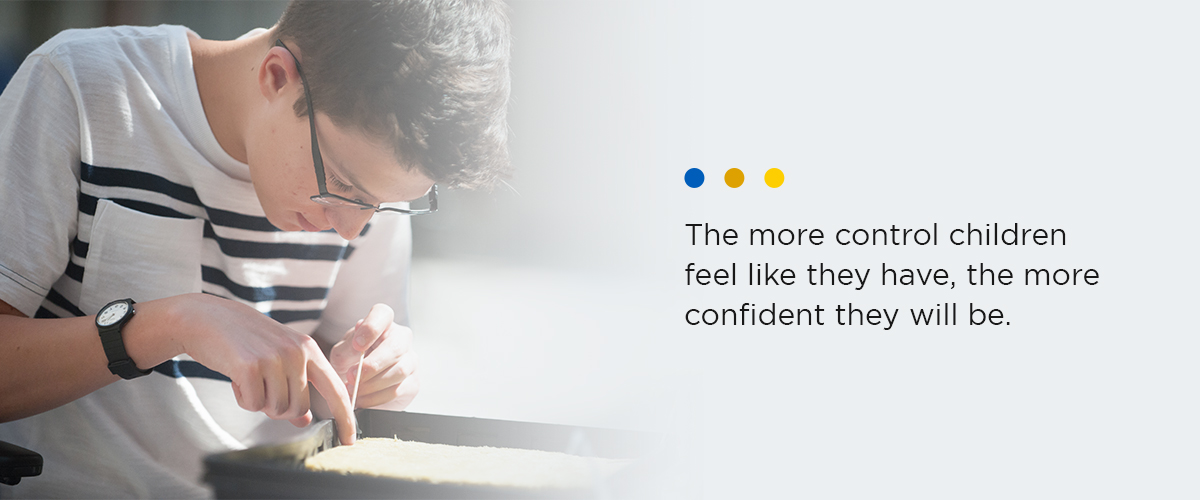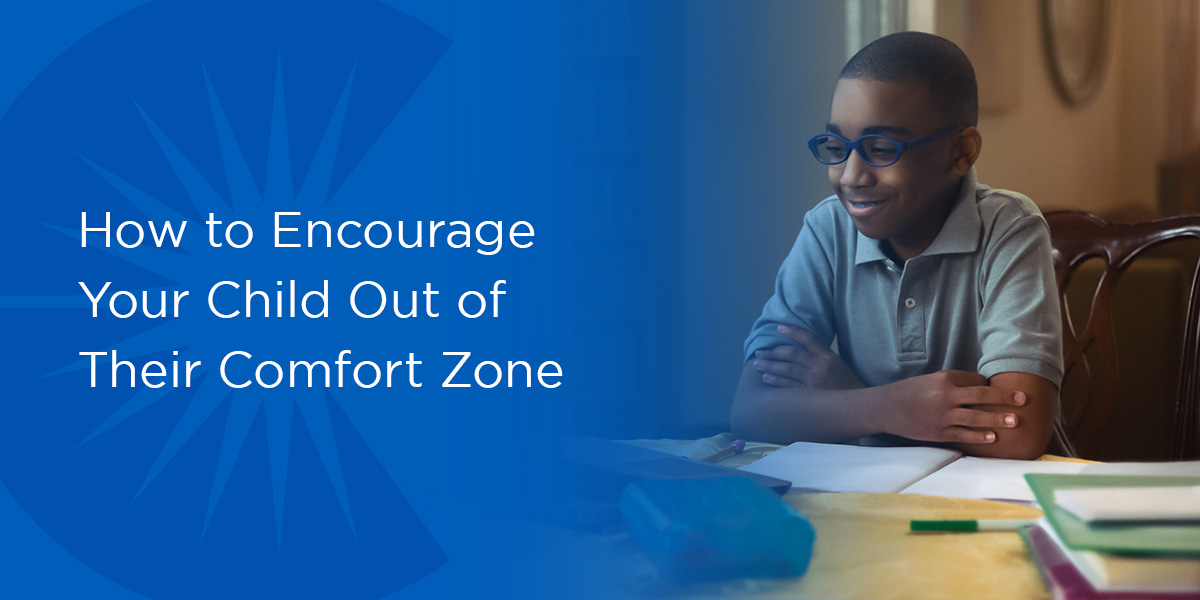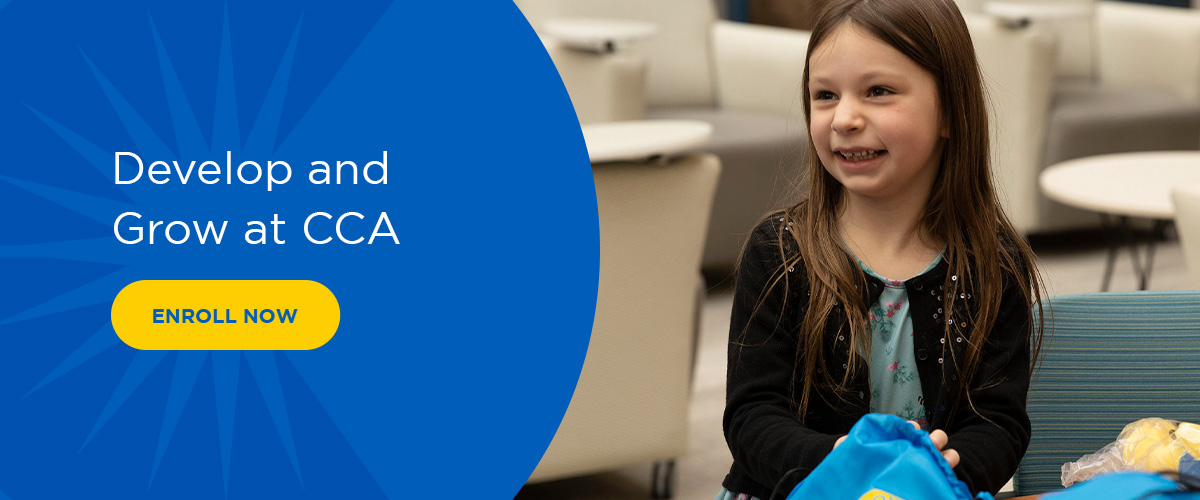While parents often want to protect their children from any struggle or challenge, getting kids out of their comfort zone helps them develop essential skills and confidence. Without pushing their limits in a comfortable setting, they’ll struggle later in life when faced with challenges. Kids need help and guidance to succeed when they deal with demanding or stressful situations.
You can help your child feel good about stepping out of their comfort zone with the right support. Let’s look at the meaning of comfort zone and how you can get kids to step outside of it with ease.
What Is a Child’s Comfort Zone?
Your child’s comfort zone is an invisible space — mentally or physically — where they feel comfortable and in control. It’s where they feel safe and defines what they are totally confident doing and what they perceive is outside of their abilities. Every child’s comfort zone will be different — kids are individuals with their own comfort levels around tackling new and challenging things. Getting them to test these limits and feel safe doing so is part of nurturing their development as they grow.
Positivity, Encouragement, and Support
Children need encouragement and guidance. Providing positivity and support will help your child step outside their comfort zone. Having the right support system allows children to feel safer trying new things. Everyone, even adults, feels more confident when they know they have someone in their corner. Children especially need that safety net and reassurance to spread their wings.
This kind of growth starts at home. When children begin taking baby steps outside their comfort zone, offer praise and encouragement. Focus on positive reinforcement — tell them when they’ve done something well and give them small rewards for their efforts. Avoid negatively-focused criticism — instead, tell them they did a good job, but maybe they could also try this other approach next time.
Positive encouragement and constant support not only make kids comfortable stepping out of their comfort zone, but make them feel safe telling you when they’ve had enough. Pushing kids too hard and too fast will only make them afraid of challenges and uncomfortable voicing their fears to you. The safer you make them feel, the more willing they’ll be to take on new activities and tell you where their limits are.
Always start and end your suggestions with support and compliments. This helps build confidence and makes them want to try more things. Additionally, if they’re hesitant about trying something new, you can offer to perform the task or action with them. Your presence alone can help kids feel more sure and ready to take on a challenge.
Set Small Achievable Goals to Build Confidence

Taking on a big challenge before they’re ready can make kids feel disheartened and less willing to test their limits in the future. To prevent this, set small goals for your child. They can work up slowly to the larger challenge with every step, gaining confidence with each smaller success. The better able your child feels to handle a smaller challenge, the more willing they’ll be to take on larger ones down the road.
You can also let them choose their own goals and challenges. The more control children feel like they have, the more confident they will be. Giving them some autonomy will help them get comfortable with branching out on their own later. This cultivates essential decision-making and independence skills they’ll need in life.
Develop an Action Plan for Challenges
While small goals and positive encouragement can help, children might still feel overwhelmed by a challenge. If you can break it down and make it seem more approachable for them, they’ll be more willing to try it. Once they know what to do and have the support of a plan to help them do it, they’ll feel more prepared to take on a task.
Sit with your child and make a plan for meeting their goal. Break down what they want to achieve and give them smaller steps and strategies they can do to get closer to their goal. Have the plan printed or written out, and let them check off each step of the plan as they complete it. Use Stickers, treats, praise, and colorful pens to get them to personalize their goals and feel more involved.
Keep Things Fun
One of the best ways to get kids out of their comfort zone is fun. Try to make everything fun and exciting. The more interesting and engaging a challenge seems, the more willing your child will be to try it. If kids are having fun while doing something, it won’t feel as hard or daunting. Fun makes everything easier, especially when we have the support of our loved ones.
Make challenges fun by adding personalized rewards or incorporating your child’s favorite things. Inject some personality into the activity to make it feel more approachable to your kids. Additionally, making challenges fun has the added reward of getting kids more interested in trying other challenges. Instead of making effort seem draining, kids will associate challenges with fun — encouraging them to push on when they start meeting resistance in school, sports, and their future jobs.
Participation in School Activities
Combine fun with collaborative opportunities to tackle new challenges through school activities. After-school activities offer socialization opportunities for kids, letting them interact with their peers and work together to overcome tasks. Clubs teach children new skills and allow them to tackle new problems and challenges in a safe, educational environment. Students receive guidance from adults while learning essential cooperative and problem-solving skills in a fun setting.
Along with discovering new, exciting challenges and developing social skills, school activities like field trips and clubs let children try new things they might not otherwise experience. This allows them to experiment with different niches and become more well-rounded, giving them an experience that can help them later in life.
Develop and Grow at CCA
Enrolling your child in cyber school doesn’t mean they have to spend their school days isolated and solely online. CCA offers many opportunities for our students to learn, grow, and explore outside their virtual classroom. We offer exciting educational field trips where kids can learn and explore new places, histories, and activities. Additionally, our school clubs and activities are the perfect settings for kids to explore their interests and socialize.
If you’re looking for a personalized learning program with lots of enrichment opportunities, enroll your child at CCA today. We’ll work with you and your child to find the best path for their growth and development. If you have questions or want to know more, request information about CCA online.




